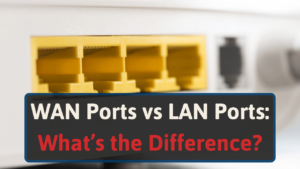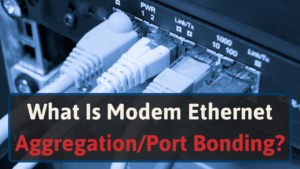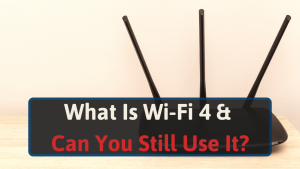I am a Network Engineer, so I get this sort of question from friends and family all the time. And while I always recommend buying, it’s definitely not for everyone.
I put together this guide in hopes you get a better understanding of what each option entails, so you can choose what works best for you.
Pros and Cons of Renting
Let’s quickly go over some facts about renting your Internet hardware:
Pros:
- Free tech support from your ISP
- Your ISP will take care of the setup (you might need to pay)
- Free replacement if it breaks or gets too old
Cons:
- It will cost you more in the long term
- Lower quality devices as ISP look to save money
Pros and Cons of Buying
Now, let’s see how it compares when buying your hardware:
Pros:
- Cheaper long term
- Better quality devices are available
Cons:
- Upfront cost of $100-$250
- Limited tech support, or none at all
- DIY installation without ISP help
How Much Money Can I Save?
We keep mentioning that buying is better because you save money in the long term.
So, how much money will you save exactly? That is what really matters after all.
Let’s do some quick math and see if buying is really worth it.
Your ISP will charge you around $8 to $15 a month to rent their hardware, which is added to your Internet bill. A new modem or router normally costs around $100 to $250. [1]
If you are expected to pay $10 a month to rent a modem or router, and buying a similar device costs $110, you will break even in 11 months.
From then on, you will be saving $10 a month permanently (you never stop paying for the rental) Plus, you most likely will have a much better device.
The real question is, are you planning on having internet for more than 11 months? The answer is usually yes.
It’s not always black and white though. What if you want a better device that costs $250?
In that case, it will take you over two years to break even. By then, you might be thinking about replacing the device already. That means shelling out another $250 give or take.
In real-life scenarios though, your modem/router should last more than two years. Plus, the difference between the $8 cheap rental router and a $250 premium device is probably enormous.
What Should I Do Then?
The decision is highly personal.
Buying a $200 device outright might not be an issue for you at all.
But what about the setup? You’ll be all by yourself. That alone might be reason alone to rent for you, and that’s okay!
We thought of giving you some things to consider in order to help you make a more informed decision.
Are you planning on moving or changing ISP’s soon?
You might think that buying makes you immune to this issue. But that is not the case.
If you are thinking of moving or changing to another Internet provider soon, you’ll probably be better off renting (for now).
Not all modems are equal, and some ISP’s might only support one or the other.
Adding to that, the other ISP might use a different technology altogether like DSL instead of Cable. In that case, you will need a new modem regardless of whether you had purchased your previous one.
Are you tech-savvy?
If you are tech-oriented, installing, cabling, and setting up a router or modem can be easy.
But if you are not, and even if you somehow manage to install it by yourself, what about support?
Who’s going to check when something doesn’t work? Those might be important questions to consider.
But don’t worry, we’re not talking about being an engineer here. Basic computer and networking understanding should be all you need to always take care of your modem or router yourself.
Are you having issues with a slow or weak Wi-Fi signal?
As we mentioned, ISP-provided devices are usually of lower quality.
If you are facing problems like an intermittent wireless signal or slow speeds exclusively on Wi-Fi, the rental device could be the issue.
Replacing the device with a higher-end alternative could solve all of these problems.
How much time are you willing to spend?
We know time is money.
Setting up a modem or router from scratch could easily take a couple of hours. Maybe even more if you face any setbacks.
Are you willing to sacrifice time over the, let’s say, $200? No wrong answers!
Modem, Router, and Gateway
You will need at least two devices in order to have a functioning Internet connection. A modem, and a router.
You could bypass this rule by using a gateway. Which is a modem and a router built in a single device. [2]
Usually, your ISP will provide you with a gateway when you rent their equipment. Though it is not uncommon for them to also give you both separately.
If you are buying your own device, it’s important to be sure if you want a gateway or a separate modem and router. If you are wondering the pros and cons of each, check out this article.
Things to Consider if You Buy Your Own Device
In case you’re already taken the decision to buy your own hardware, we thought it would be good to make sure you take the following into account:
#1 Make your decision based on your Internet plan.
Whatever router or gateway you get, needs to be able to handle your Internet connection.
If you have a 2 Gbps fiber connection, but you use a Wi-Fi 5 wireless router, you will be wasting more than half the bandwidth you are paying for.
No matter how good your Internet speed is, it will only be as fast as your router allows.
#2 Double-check that the device is compatible with your ISP
As we mentioned above, not all modems are compatible with all ISPs. They might differ in technology (DSL vs. Cable), or simply be incompatible for another reason.
There are usually no workarounds for incompatible modems, so make sure you are getting the right device.
#3 Distance can be a real problem
So you got a router that can handle your speeds and a modem that is compatible with your ISP.
Great!
After installing everything, you notice you barely get any signal, or none at all. All that work for nothing.
Range is an important aspect of routers and gateways. If you have a big home, you need to get a powerful router that performs well over long distances. Alternatively, you can get a mesh Wi-Fi system.
If you are not sure where to get started, here are some guides where we base our recommendations specifically on each ISP:
Bottom Line
Most of the time, you will be better off buying your own modem and router (or gateway) than renting them.
The reason ISP’s are eager to rent these devices to you is that they earn a lot of money off of them.
However, different people or families can have different needs. There are in fact some situations where renting makes perfect sense.
So, it’s important to go over all the aspects that go along with it and decide for yourself.
For more guides on topics such as this check out our Home Networks Guides.







